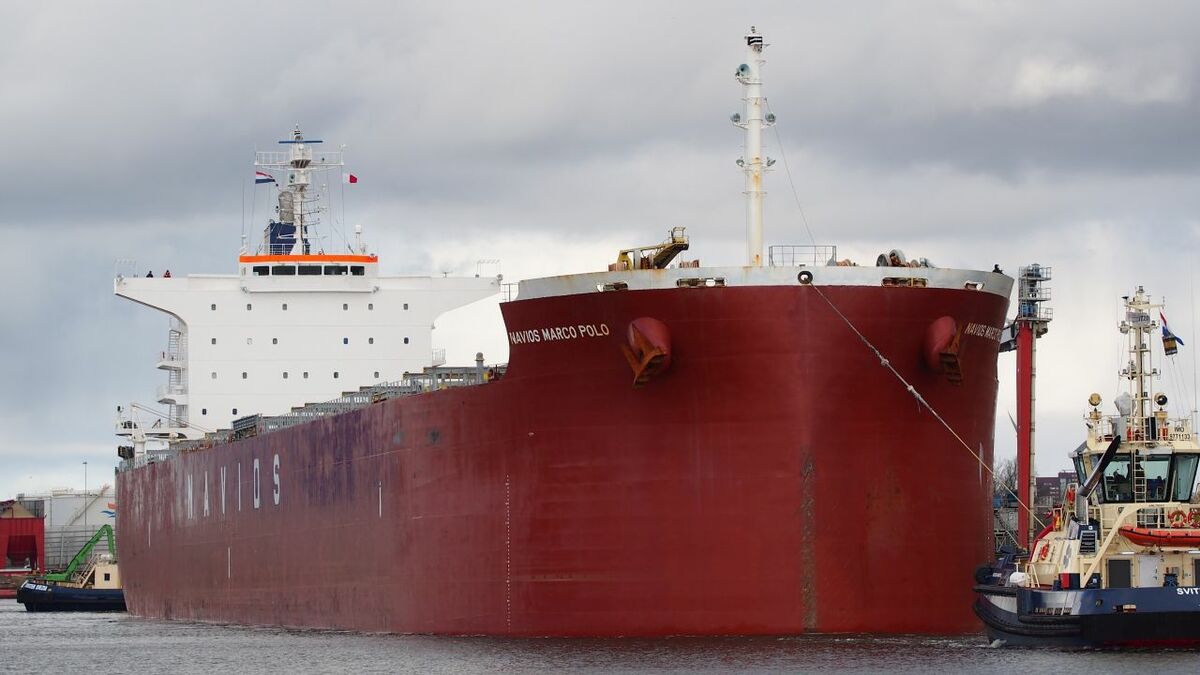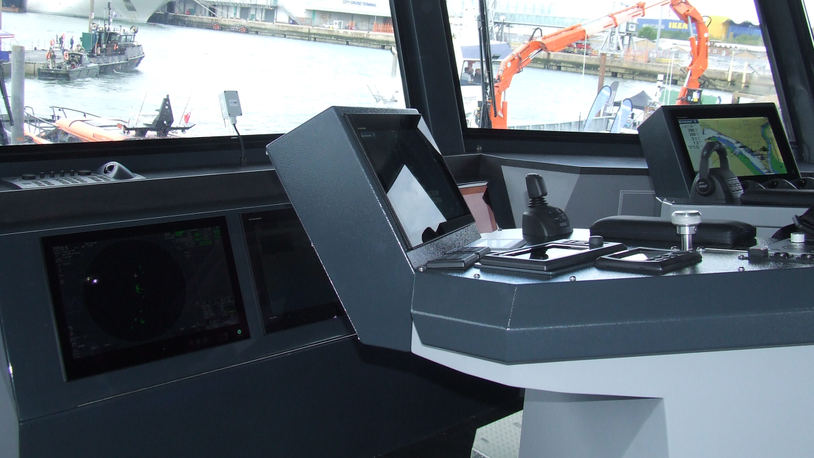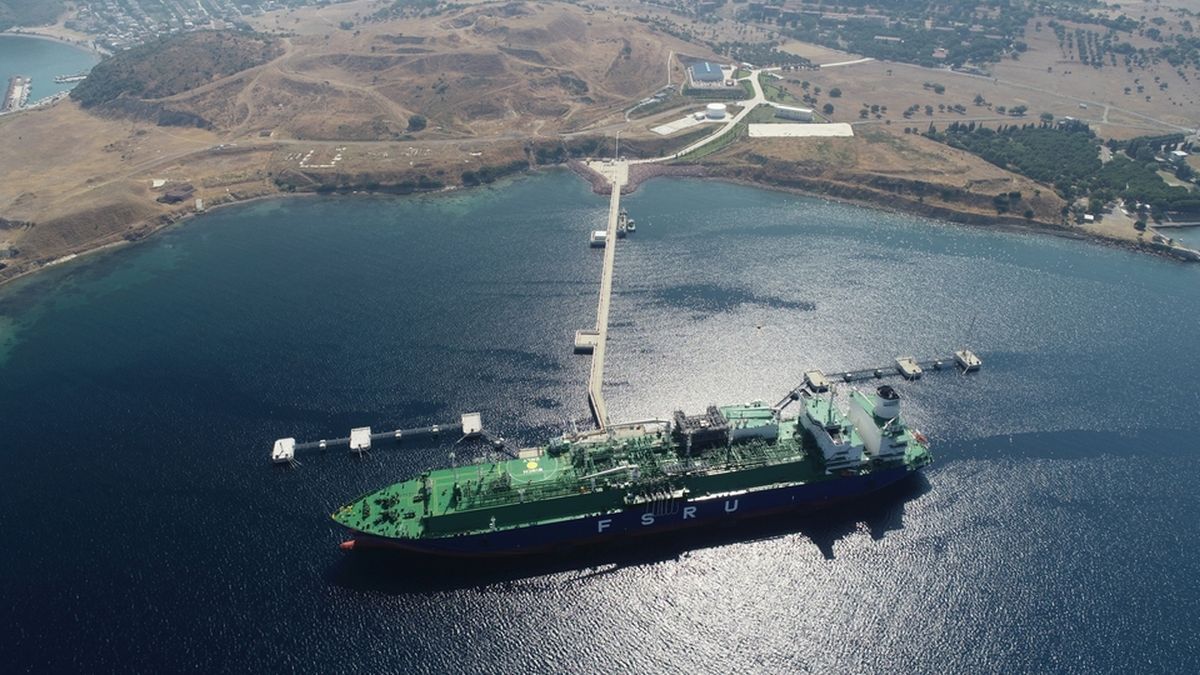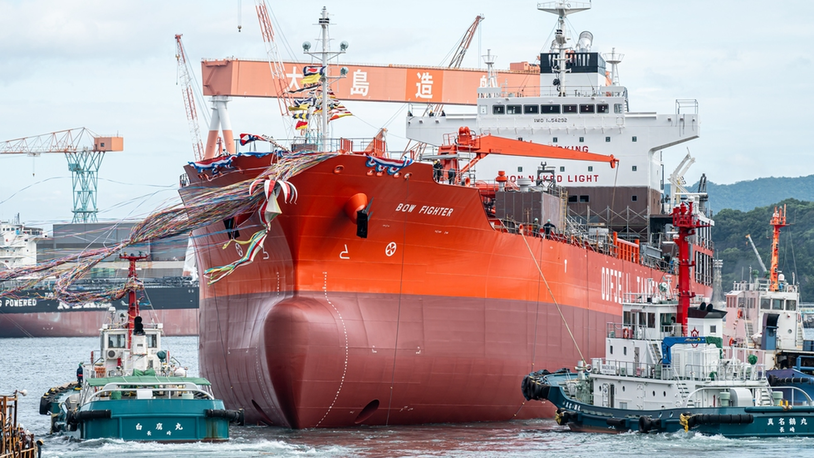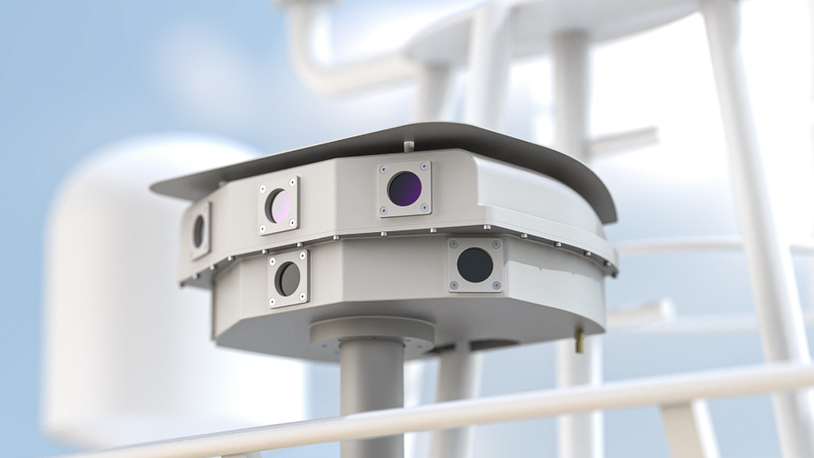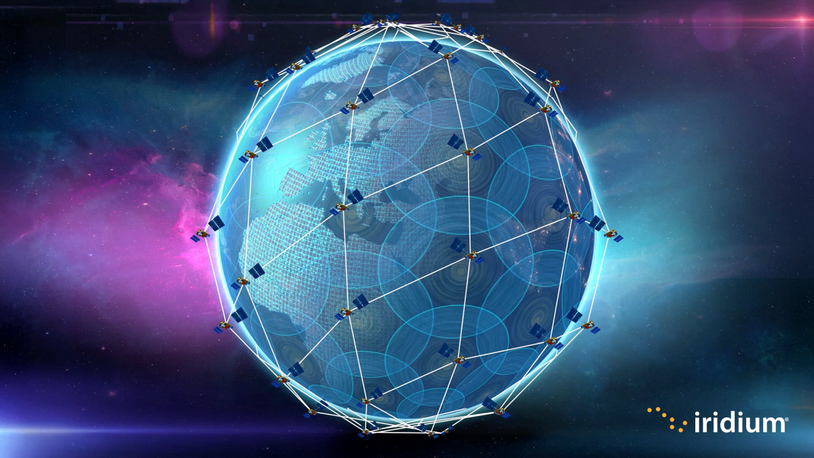Business Sectors
Events
Offshore Wind Webinar Week
Contents
Digitalisation and IoT are top priority for Navios
Digitalisation technologies will bring about a revolution in shipping if cultural and technical barriers can be overcome
Greek shipowners, managers and operators are embracing the digital evolution shaping every aspect of maritime. Navios Group is a leader in this adoption drive as it has deployed enterprise resource planning (ERP) tools, VSAT satellite communications and is testing internet of things (IoT) and remote system monitoring.
Navios Group IT manager Katerina Raptaki says investing in digitalisation and associated technologies delivers competitive advantages and cost benefits for shipowners and managers.
“IoT, artificial intelligence and machine learning can bring a real revolution to shipping,” she tells Maritime Digitalisation & Communications.
“All of these, in combination with modern connectivity methods, can guarantee that shipping will move to a new era in the very near future. I believe it is time to embrace change and the competitive advantages it can bring.”
Navios has implemented ERP and fast Ka-band satellite communications from Inmarsat. This year it is testing several telemetry applications from various vendors for IoT solutions. It is trialling services for collecting real-time data from sensors on board the ships it manages or directly from the main engine and other machinery.
“This data can be used to produce real-time reports or alerts and alarms” says Ms Raptaki. “It can potentially be used to predict serious failures that would cost thousands of dollars.”
Navios clearly visualises potential benefits from implementing this IoT technology in preventing system failures, lowering maintenance costs and reducing off-hire claims.
“These solutions, once implemented, will bring a real revolution to the shipping business,” says Ms Raptaki.
She lists the potential benefits as:
- Huge economies of scale.
- Predicting and preventing hardware failures.
- Timely troubleshooting of under-performance or malfunction.
- Accurately calculating bunker supplies.
- Engine performance optimisation.
- Better real-time voyage planning based on actual weather conditions.
- Reduced bunker consumption.
“Needless to say, a timely intervention to prevent serious damage will save the company from drydocking expenses, towing operations, off-hire claims and other unpredicted expenses,” says Ms Raptaki.
“IoT will reduce the need for planned maintenance and the vessel’s managers will focus on the parts or components which are most at risk of damage.”
Further adoption of IoT, AI and machine learning in the shipping industry could facilitate these benefits for all stakeholders. However, digital innovators still need to convince senior management that the investment will provide these returns.
“There is still a long way to go in this direction,” comments Ms Raptaki. “The decision makers and operators of the shipping companies are sceptical about such modern systems and usually do not trust them in their day-to-day work.”
She thinks managers and executives who believe in the potential of such systems “need to present case studies to the management, to convince them of the benefits.”
Another issue with technology adoption is ensuring seafarers and office teams are trained to use these systems effectively to achieve the benefits. “Under the pressure of the daily workload, in most companies, training is considered a luxury,” says Ms Raptaki.
“As a result, once modern systems are implemented, people have a hard time using them.”
There is also a risk that digitalisation systems will not be supported in future years and updates will not be available. “We therefore have a struggle to overcome obstacles related to culture and mentality,” says Ms Raptaki. “This is where the real challenge lies.”
Navios has overcome technical challenges in terms of ship-to-shore connectivity by deploying Inmarsat Fleet Xpress throughout its fleet to provide fast and reliable connectivity between ships and management offices.
“Fleet Xpress allows us to use office applications on board the vessels,” says Ms Raptaki. “It enables remote support by our IT team and also provides the crew with cheaper and more cost-effective telephone and internet services.”
Navios has also implemented a fully integrated ERP in its offices and vessels. These cover:
- Trading
- Chartering
- Voyage estimation
- Projection
- Operation
- Vessel performance
- Port calls
- Vessel attendances
- Accounting
- Treasury
- Electronic invoicing
- Insurance
- Payments and banking
- Crew management
- Technical management
- Planned maintenance
- Risk management
- Audits and vettings
“Furthermore, we use a business analytics and intelligence platform to use the information in the ERP system for further analysis and to produce more sophisticated reports, to be used by management as decision support tools,” explains Ms Raptaki.
Navios has used Benefit software for ERP and business analytics for 15 years in its ship operations and management. “The benefits so far are transparency, proper control in validating the accuracy of information, compliance, security and data availability,” says Ms Raptaki.
“We have concluded that every penny spent in this investment is promoting the business and providing the company the tools required to enter a new digitalisation era.”
Snapshot CV: Katerina Raptaki
Katerina Raptaki has 32-years’ experience in IT and communications, including 20 years in shipping. As IT manager of Navios Group, she is responsible for managing IT systems on more than 150 vessels, owned or managed, in four NYSE-listed companies.
She graduated from the National Technical University of Athens with a degree in naval and mechanical engineering.
Ms Raptaki has deep knowledge of marine satellite systems, vast experience in shipping software and project management. Her management positions have provided her with a full understanding of technical issues and operational procedures, technical systems delivery and people management skills.
Ms Raptaki is a former president of AMMITEC, the Association of IT Managers in Shipping.
Related to this Story
Events
Offshore Wind Webinar Week
Maritime Decarbonisation, Europe: Conference, Awards & Exhibition 2025
Offshore Support Journal Conference, Americas 2025
© 2024 Riviera Maritime Media Ltd.


